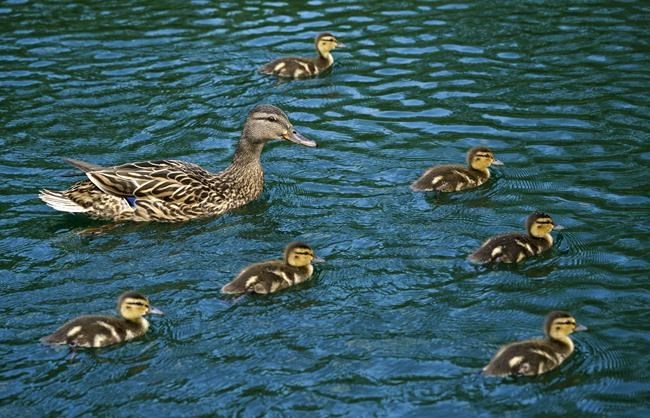BURNABY, sa╣·╝╩┤½├Į — A British Columbia animal rescue group is issuing tips for the public after dozens of orphan ducklings have been brought into its centre.
The Wildlife Rescue Association of BC says the recent warm spell in the province set off the orphan surge to its hospital.
Kimberly Stephens, the group's hospital manager, says they expect to see more ducklings brought in and they'll have to be cared for over the next six to eight weeks.
The group says ducklings leave their nests immediately after hatching, but they still need their families’ help to find food, stay warm and be protected.
It says if a person finds a baby duck alone they should try to protect it and wait for its mother to return, and if that doesn't happen within an hour, the duckling should be brought to its Burnaby centre.
As for what to do if you see a duck family crossing the road, the association says human safety comes first, after that it suggests trying to gently steer the birds to the nearest waterway because trying to capture them will only frighten away the adult.
This report by The Canadian Press was first published May 3, 2023.
The Canadian Press



